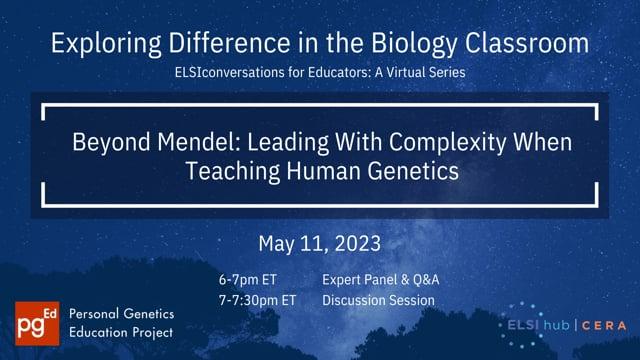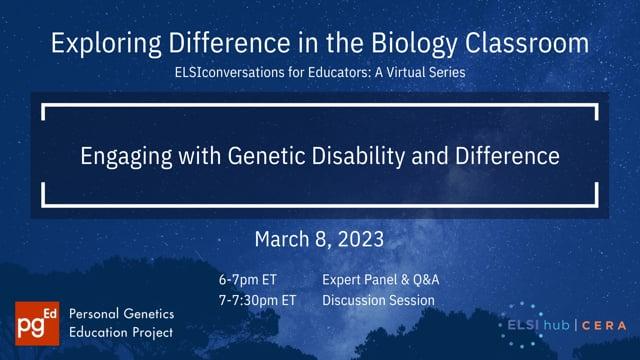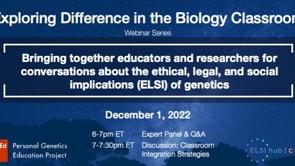Exploring Difference in the Biology Classroom: What Genetic Ancestry Tests Mean (and What They Don't)
Date: April 11 2023, 3-4 pm PT / 6-7 pm ET
Genetic ancestry testing is often framed as a means to understand who we are and where we came from. But what, exactly, do the results of these tests mean? Why are genetic data from ancestry tests of interest to individuals, scientists, and companies? What important questions arise about the uses of these data? Facilitating classroom conversations about genetic ancestry testing can be a powerful way to both connect scientific advances in the real world with lessons about human genetic variation and support students in becoming informed consumers.
In this session, experts in genetics and anthropology shared their perspectives on genetic ancestry testing and address questions that students commonly have. Attendees gained insight on the process of estimating a person’s ancestry, understand some known limitations of the science, and learn how test results can be interpreted (or misinterpreted) as a source of information about racial and ethnic identities, familial relationships, and population history
Presenters: Janina Jeff, PhD, MS & Jada Benn Torres, PhD
Co-Moderators: Rob O'Malley, PhD & Nadine Vincenten, PhD
Suggested citation: Jeff, J., Benn Torres, J., & O'Malley, R., Vincenten, N. (2023, April 11). Session 3: What genetic ancestry tests mean (and what they don't) [Video]. The Center for ELSI Resources and Analysis (CERA). https://elsihub.org/video/exploring-difference-biology-classroom-what-genetic-ancestry-tests-mean-and-what-they-dont
Please find the transcript, additional resources, and the presenters' slide decks in the upper right hand corner of this page.
Tags
Videos in Series
-

ELSIconversations 4: Exploring Difference in the Biology Classroom - Exploring Complexity in the Biology Classroom: Beyond Mendel: Leading with Complexity when Teaching Human Genetics
-

ELSIconversations 4: Exploring Difference in the Biology Classroom - Exploring Difference in the Biology Classroom: Engaging with Genetic Disability and Difference
-

ELSIconversations 4: Exploring Difference in the Biology Classroom - Exploring Difference in the Biology Classroom: How to represent wide-ranging family structures and personal identities using the latest pedigree nomenclature
